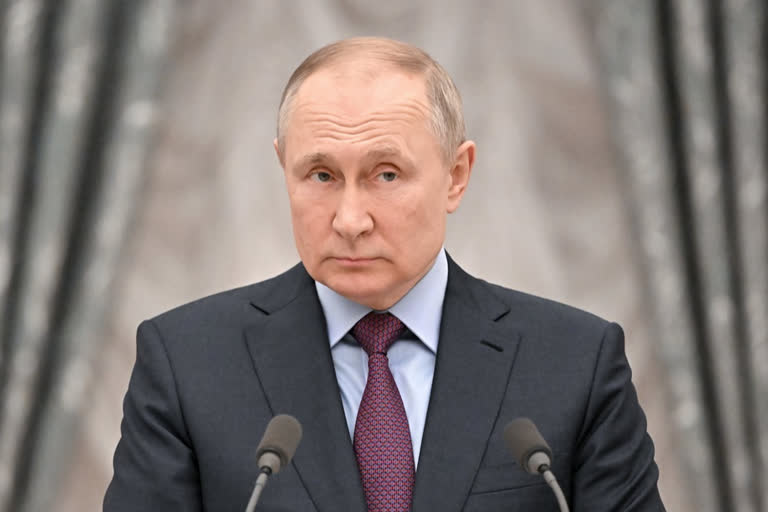New Delhi: Ever since Russian incursions well inside Ukrainian territory that started on February 24, a significant talking point among European diplomatic and top-tier political circles in recent days has been that of excluding Russia from SWIFT. A communication mechanism that runs secure, financial messaging services among 11,000 corporations in about 200 nations including India, the move could see Russia taking a huge hit economically.
The move appears to be currently in transit as the next big thing, with several tranches of sanctions already imposed by the United States, aided by its Western European allies such as the UK and Germany, who have taken measures of their own, such as freezing Russian banking assets or halting the ongoing work for the Nord Stream 2 natural gas pipeline.
Ukrainian Foreign Affairs Minister Dmytro Kuleba, on Saturday, tweeted out informing that he had discussed the issue with his French counterpart, Jean Yves Le-Drian, who stood in support of the decision. President Volodymyr Zelenskyy, meanwhile, said that he had spoken to Italian Prime Minister Mario Draghi, who too "supported Russia's disconnection from SWIFT".
Let us take a look at the exact nature of SWIFT, and the implications of a Russian ouster from the framework.
Also read: China is Russia's best hope to blunt sanctions, but wary
What is SWIFT
Based in the Belgian capital of Brussels, Society for Worldwide Interbank Financial Telecommunication (SWIFT), oversees since 1973 a smooth execution of global financial transactions, replacing the previously used Telex system. A cooperative under Belgian law, it does not oversee deposits and is controlled through representatives from several central banks, such as the US Federal Reserve System, Bank of England, European Central Bank (for European Union countries), and others.
What could Russia's exclusion mean
Notably, this is not the first time for the West and Europe to consider kicking Russia out of SWIFT. In 2014, during the latter's annexation of Crimea, it had been threatened with a similar warning, leading Russian Finance Minister to have suspected a contraction of 5% in its economy at the time.
In case of Russia's exclusion, banks in the country could not use the system to carry out financial transactions with banks in other countries, prompting Russian banks to start intra-nation transactions, ultimately resulting in added costs biting into banking revenues of the country.
Implications for the rest of Europe
The major controlling factor behind Russia's removal, or the prevention thereof in the past, has been the enormous oil and natural gas reserves at the disposal of the Eastern European giant.
The European Union, at present, sources roughly 40% of its gas supplies from Russia. The matter has already been addressed by European heads of countries, with UK Defence Secretary Ben Wallace noting that forcing Russia's departure would be somewhat of a double-edged sword.
"When you pay Russia for its gas, it probably goes through the Swift system, for example. It is based in Belgium. It has a number of partners that control it or nation-states. We want it switched off. Other countries do not. We only have so many options. We are going to work all day to try and get it (switched off for Russia)", Wallace said.
Also read: Russia-Ukraine crisis: US Treasury imposes sanctions against Putin, other leaders
Finding alternative sources is considered to be difficult, keeping in mind rising prices of traditional energy resources, and several countries inside the EU are hesitant about the move.
With agency inputs



